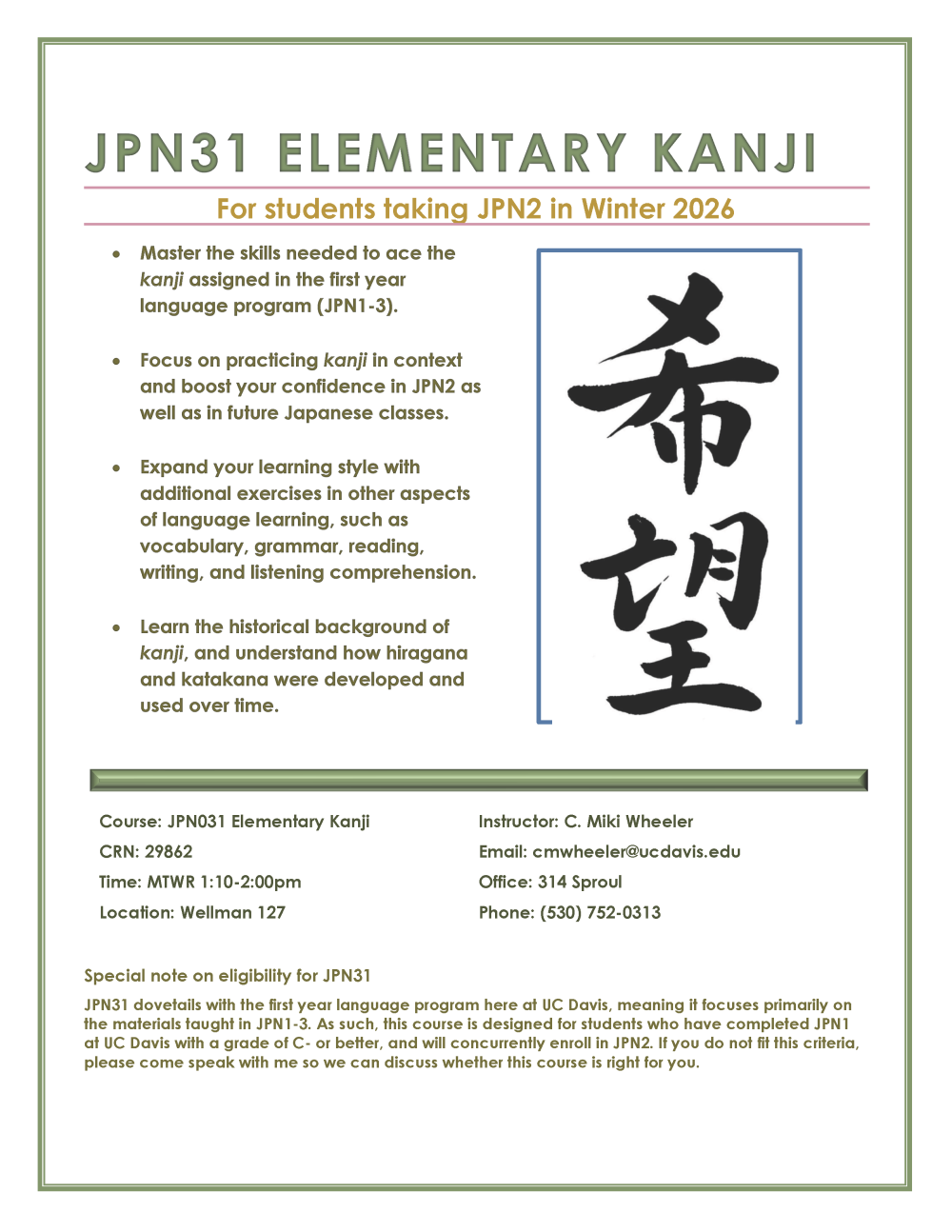Winter Quarter 2026
- For day, time, room, and TA information, see our PDF schedule or the class search tool https://registrar-apps.ucdavis.edu/courses/search/index.cfm.
- For all courses not described here, please refer to the General Catalog course descriptions: https://catalog.ucdavis.edu/courses-subject-code/jpn
Lower Division Courses
- JPN 002 (12 Sections)
- JPN 005 (4 Sections)
- JPN 031 - Basic Kanji
Miki Wheeler - Master the skills needed to act the kanji assigned in the first year language program (JPN 1-3)
- Focus on practicing kanji in context and boost your confidence in JPN2 as well as in future Japanese classes
- Expand your learning style with additional exercises in other aspects of language learning, such as vocabulary, grammar, reading, writing, and listening comprehension
- Learn the historical background of kanji, and understand how hiragana and katakana were developed and used over time.

Upper Division Courses
- JPN 102 - Japanese Literature in Translation: The Middle Period
Joseph Sorensen - Study of the major literary genres from the 12th century to the second half of the 19th century including poetry, linked-verse, military chronicles, no drama, Buddhist literature, haiku, haibun, kabuki, bunraku, plays and Edo prose narratives.
- JPN 112 - Modern Japanese: Reading and Discussion
Junko Ito (Sec. 001 and 002)
Miyo Uchida (Sec. 003) - JPN 122 - Advanced Japanese II
Yumiko Shibata - JPN 151 - Japanese Linguistics
Anthony Diaz - Introduction to Japanese linguistics, featuring key aspects of the Japanese language. Analysis of Japanese from the perspectives of phonology, syntax, discourse analysis, sociolinguistics and psycholinguistics.
- JPN 154 - Tourism and Heritage in Japan
Michael Dylan Foster - Focus on related concepts of tourism and cultural heritage within Japan, with attention to questions of tradition, authenticity and nostalgia. Examination of cultural heritage sites on various scales, including built environment, national cultural forms, and local performances such as festivals.
- JPN 155 - Introduction to Japanese Folklore
Michael Dylan Foster - Focus on narrative genres of myth, legend, and folktale, with additional attention paid to festivals, folk art, belief systems, and the development of folklore studies (minzokugaku) as an academic discipline. Examination of the relationship of folklore to ethnic and national identity.
